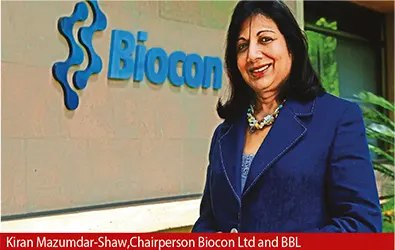Want to Subscribe?
Read Corporate India and add to your Business Intelligence

![]() Unlock Unlimited Access
Unlock Unlimited Access

Editorial 123 15
Waking up belatedly after a spate of IPOs with certain disturbing trends during the last quarter, the Securities Exchange Board of India (SEBI), the regulator of the capital market, has come out with certain measures to tighten IPO rules. Limits have been placed on the amount of shares that existing shareholders of a company – one without a track record and coming out with an IPO — can sell under an offer for sale. SEBI has also called for mandatory disclosures by companies of their intended acquisition target wherever funds are being raised from the public for the purpose of such acquisitions. This rule comes after several new-age technology companies had in their draft red herring prospectus mentioned the use of fresh funds for acquisition purposes, but without giving any further details.
Further, the market regulator has placed new limits on the amount of shares existing shareholders of a company — one without a track record going for an IPO — can sell under an offer for sale. Now, investors with more than a 20 per cent stake before the IPO will be able to sell no more than half their shares in such an offer. SEBI has also mandated that credit rating agencies will act as monitoring agencies to ensure that the funds raised by companies are used for their stated objective. And such monitoring of IPO funds will continue till 100 per cent of the funds are used.
Needless to say, all these measures are useful in their own way but it is surprising that the regulatory authority has not touched on the problems that are at the root of the rot in IPO management. Take the pricing policy — one fails to understand on what basis SEBI permits the promoter and merchant banker to fix any price, even an exorbitant one, for an issue. For instance, Paytm, a non-profit making company, was allowed to fix an unbelievably high price of Rs 2,160 per share of the face value of Re 1. The IPO bombed but SEBI has not realised its own role in the fiasco.
The questions that arise are: Has SEBI been created to protect the interests of investors or further the interests of promoters and their merchant bankers? Again, how many high-priced IPOs have crashed after listing? Retail investors are quickly losing faith in such IPOs as well as the regulatory authority. This is detrimental to the healthy growth of the capital market and to growing the equity cult in the country. Ultimately, these trends will adversely affect the pace of industrial growth in the country, as genuine promoters may not get the required funds their projects.
There was an excellent pricing policy under the Controller of Capital Issues. An IPO price was fixed by the CCI after considering various parameters, and the prices fixed under this formula were reasonable and related to the size and status of the company. Is SEBI not capable of devising such a pricing policy system?
Under the revised rules, SEBI has extended the lock-in period for anchor investors from the current level of 30 days post-listing to 90 days for 50 per cent of the portion allotted them, while for the remaining portion the lock-in period remains 30 days. This may be a case of too little, too late, as the Indian IPO market is inexorably moving in the direction of becoming a gambling den, wherein investors heavily subscribe to new issues and then immediately sell off shares on listing, adversely affecting the equity cult.
In fact, the lock-in period for all investors, including anchor investors, should be kept at one year in order to discourage gambling trends and promote the equity cult in the country.
Cover story 123 15

The Ahmedabad-based construction major PSP Projects is knocking on the doors of the big league with the completion of more than 180 projects and with an order book of more than Rs 4,000 crore in hand. Offering the A-Z of construction services, the company has made its mark in major Indian states like Gujarat, Rajasthan, Karnataka, Uttar Pradesh, Maharashtra and New Delhi, and is well on course to acquire a pan-India footprint.
Economy 123 15
India’s economic growth is expected to be 8.3 per cent in the current financial year and 8.7 per cent in 2022-23, according to World Bank’s “Global Economic Prospects” report, which released today. The 8.3 percent GDP growth prediction for the current fiscal (2021-22) is the same as what was projected by the World Bank in its last projection released in October 2021.
- Neeraj Bansal (KPMG)
Corporate Development 123 15

With a team of 4800 people, Biocon Biologics (BBL), a material subsidiary of NSE-BSE listed Biocon Ltd aspires to transform healthcare through affordable innovative solutions as well as impact 5 million patients’ lives by FY22. BBL is uniquely positioned as a fully integrated ‘Pure Play’ biosimilars organization in the world.
Corporate Feature 123 15
Karnataka-based Vishwaraj Sugar Industries is an integrated sugar company, producing sugar, power and alcoholic spirits by distillation, including ethanol, blending and bottling of Indian Made Foreign Liquor (IMFL), and generation of power. The company has an integrated sugar manufacturing facility located at Bellad Bagewadi in Belagavi district of North West Karnataka, which has been classified as a High Recovery Zone for sugar production by the Centre. The company also manufactures distillery products like rectified spirit, anhydrous ethanol and extra-neutral spirit from molasses and sugar syrup.

February 15, 2025 - First Issue

Industry Review

Want to Subscribe?
Read Corporate India and add to your Business Intelligence

![]() Unlock Unlimited Access
Unlock Unlimited Access
Lighter Vein

Popular Stories
Archives
